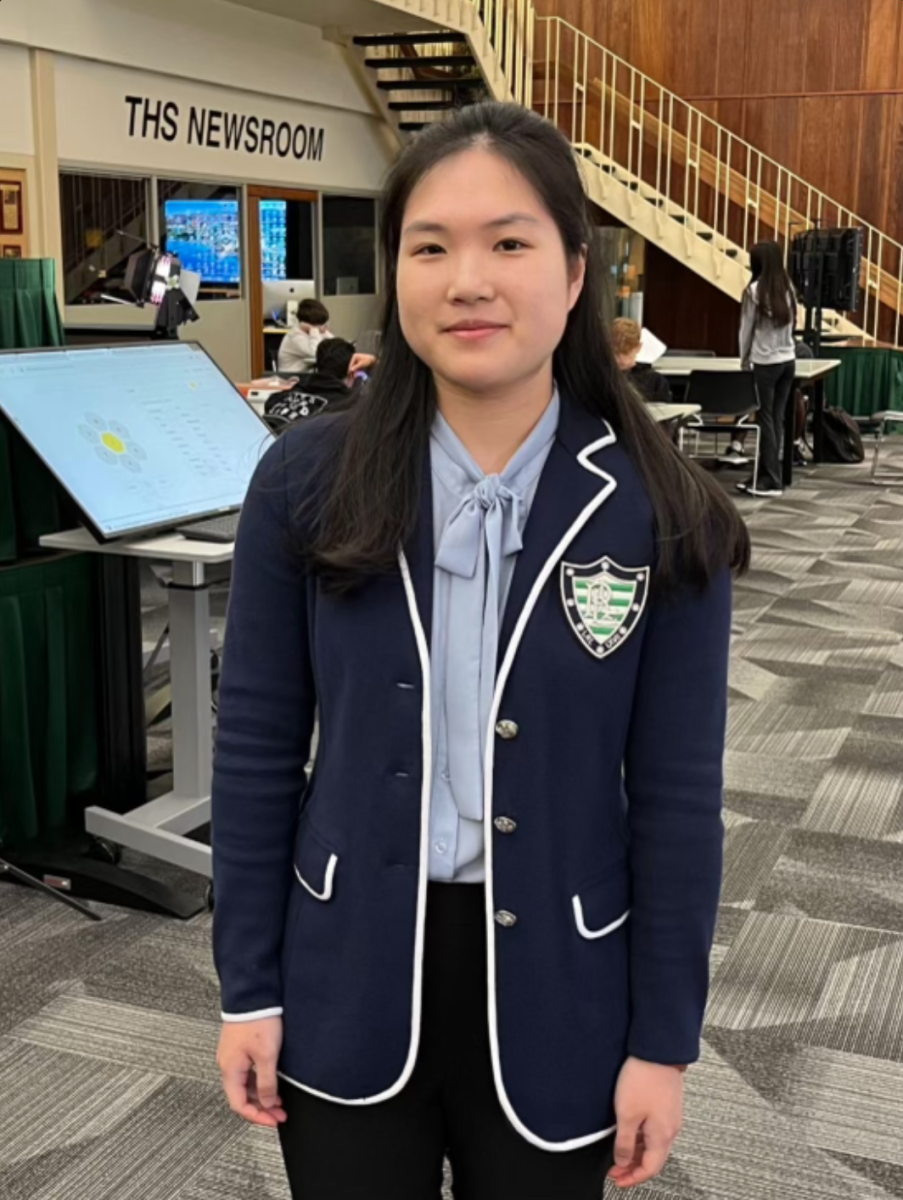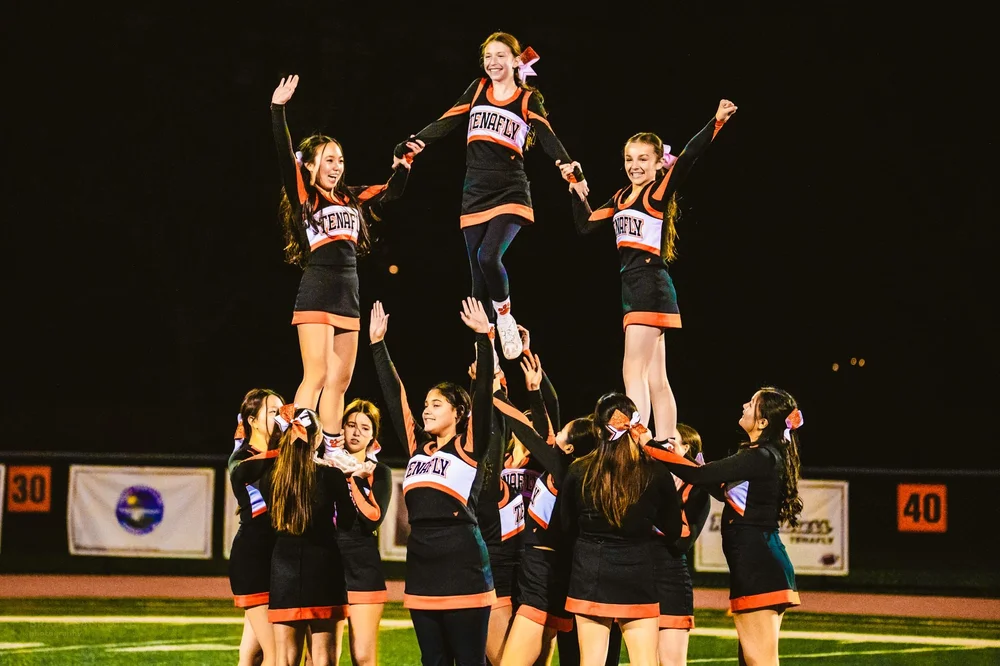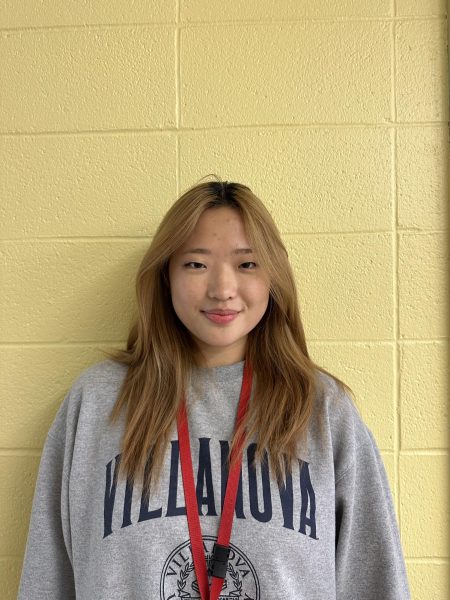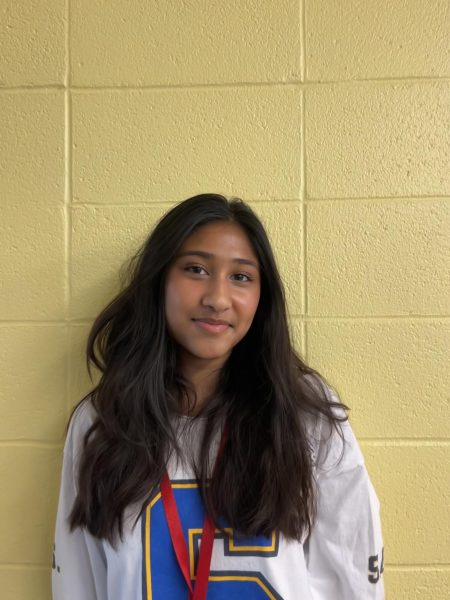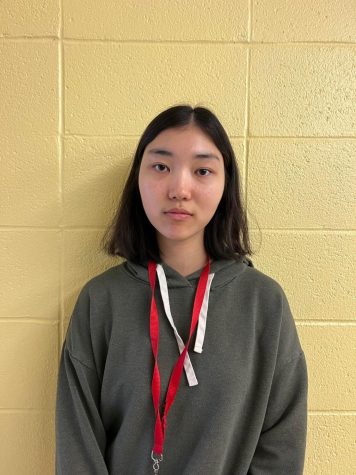Think about the hundreds of students who work hard every year, applying for different internships and opportunities in pursuit of their passions. One exceptional THS student stands out among them, co-authoring a book chapter based upon her own extensive research on intestinal stem cells.
Cindy Pyo (’24) has become a co-author of a chapter in Intestinal Differentiated Cells, Methods and Protocols in Molecular Biology based on her own extensive research, “Modeling Notch Activity and Lineage Decisions Using Intestinal Organoids.”
“This is such a great achievement for any professional scientist, let alone a budding scientist in high school,” Ms. Aparna Subramanium— THS’ Science Research teacher—said in the THS Student Press Release. “I am extremely proud of Cindy.”
In her sophomore year, Pyo began commuting after school to Columbia University Irving Medical Center, an opportunity she received by cold-calling several professors for advanced research opportunities. Every day since, she has become part of the Cheng Lab, Columbia Stem Cell Initiative and has become a senior member of a team researching intestinal stem cells and their response to dietary changes.
According to the THS Student Press Release, the chapter that Pyo took part in writing “focused on using intestinal organoids as a tool to study Notch activity in intestinal lineage decisions.” Pyo and her team strived to answer their research question: “How can we use organoids to understand the mechanism of Notch signaling and its impact on intestinal cell fate?”
“I feel that I am very fortunate for the opportunity given,” Pyo said. “But I also feel that I deserve[d] it considering the work and the amount of time and effort and everything I put in.”
Extending from her experience in researching intestinal stem cells, Pyo is currently carrying out another research that focuses on finding a nutritional treatment for Inflammatory Bowel Disease (IBD), which she described as a “chronic disorder that occurs in your small intestines.”
While exploring this topic, Pyo became aware of the growing number of patients suffering from the disease.
“People are getting diagnosed with [IBD] every year,” Pyo said. “It’s doubling each year, but [many people] don’t know that. And a lot of pediatric patients—kids around our age or even younger–are getting this disease, but doctors have nothing to offer to them.” Pyo and her team have been working to find the specific nutrition that would allow them to control and rescue the effects of IBD inflammation.
Although Pyo is interested in pursuing a MD/PhD in medicine, her aspirations extend far beyond academics. “I want to make change in the society where everyone at least has an opportunity to get informed of their health issues,” Pyo said. “I find myself not just pursuing a degree for [its pure] purpose, but also being in a higher position where I can change the world to a society where everyone feels and knows the need for equal healthcare.”
Pyo encourages students who are interested in procuring a similar opportunity to not be afraid to reach out to different resources. “Often, professors don’t look for prior experience, because as a high school student, it’s very rare for you to have background experience in the field,” she said. “They are taking you in to create another generation of future scientists to work in their field. So, I would highly encourage [students] to show that motivation initiative.”
Pyo further noted the THS Research Program as another helpful source in preparing for a career in science. “The Science Research Program is something that’s not granted to other students in different high schools,” Pyo said. “It helps you a lot with finding the career path and finding out who you are, [and] how you enjoy being outside of classes.”











































































































































